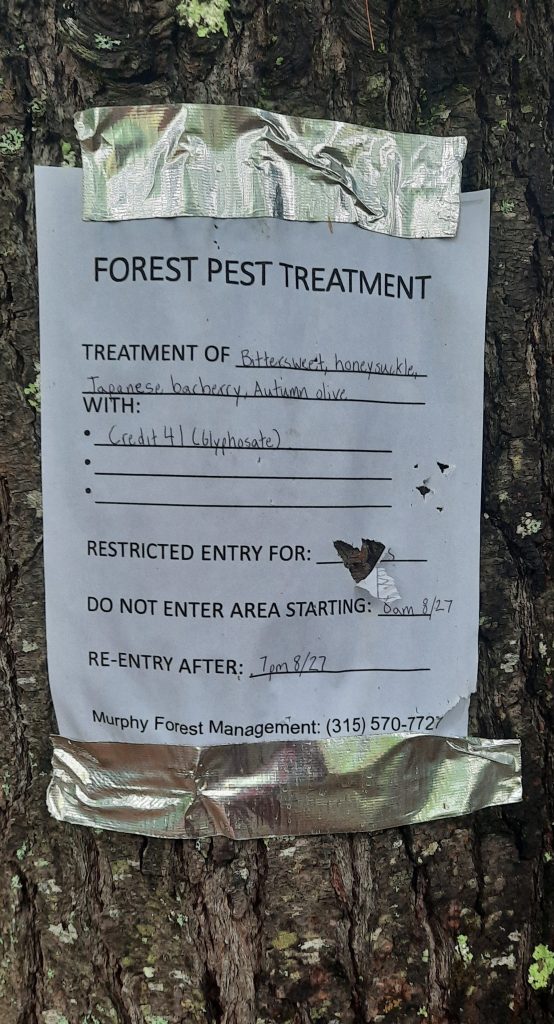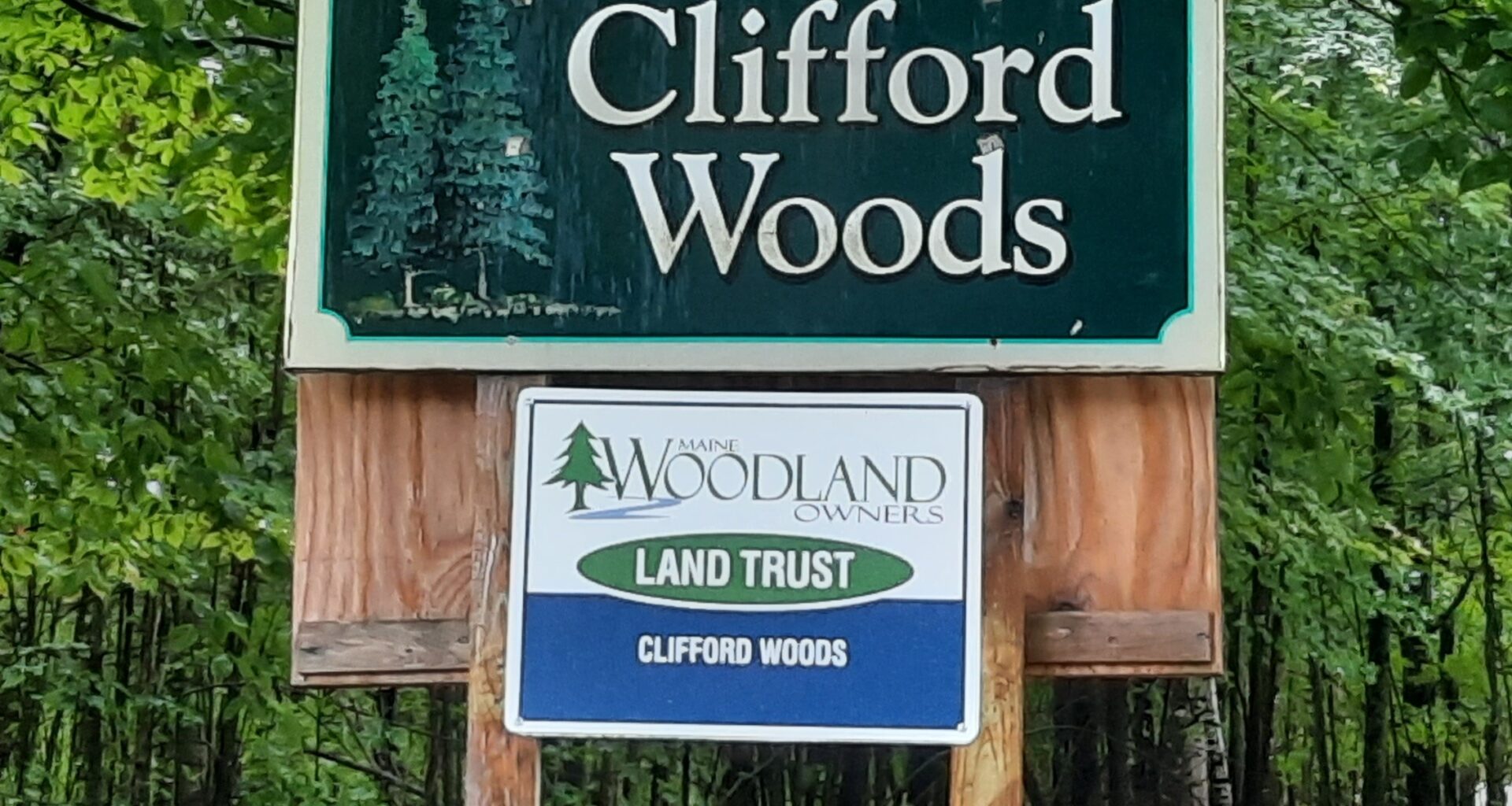FARMINGTON — Foraging has become a cultural sensation in recent years. Many Mainers forage mushrooms and plants as food and medicine from Maine’s forests, fields, and diverse landscapes. However, foraging in areas that may have been sprayed or contaminated with chemicals is not recommended, and permission from landowners is required. Foraging is not allowed in Maine state parks and historic sites, but it is allowed in most cases on public land, according to state laws on the subject of gathering.
Recently, a “re-entry interval” sign was observed at the north and south entrances of Clifford Woods in Farmington. This sign posting indicated that triclovir and glyphosate had been sprayed for the purpose of mitigating invasive plants, including “bittersweet, honeysuckle, Japanese barberry, and autumn olive.” The post also indicated the area was restricted from 8 am on Saturday August 27th until 7 pm on the same day, and people should not enter. Further research revealed that a total of eight acres on the south side of the woods, proximal to route 43, and six more acres proximal to the Titcomb Hill Road entrance were treated.
 Sign posted on a tree entering the Clifford Woods area from Titcomb Hill Road. Photo by Andre Cormier.
Sign posted on a tree entering the Clifford Woods area from Titcomb Hill Road. Photo by Andre Cormier.
The Maine Woodland Owners Land Trust owns many parcels across the state including Clifford Woods, maintaining the trails and forest for public use. Director Tom Doak confirmed that the decision to use a targeted herbicide application on this particular parcel was made as part of a strategy to prevent the unchecked spreading of invasive plants. “We don’t want these plants on our land, and we don’t want them to spread.”
The land trust would like to recolonize the area with native plants, he said, and this targeted application is part of a strategy with that goal in mind. “We would prefer to do this by hand, but the practicality of that is a challenge. You can cut them, but they tend to come back and spread,” said Doak. This is the first application of herbicides for this purpose in this location, and he is hoping it will be the last. There will be a re-assessment and decision made regarding the ongoing strategy by early spring.
On Thursday, Maine Board of Pesticides Control Director Alex Peacock provided information about the use of pesticides and herbicides on public land or trails. Clifford Woods is owned by a land trust, which is a private entity and not a municipality. Therefore, re-entry interval postings are the only required notice to the public when these chemicals are sprayed. Regulations also require applications of chemicals for the purpose of mitigating plant or animal pests to be performed by a commercially licensed pesticide applicator.
It was “a bad invasive plant infestation,” according to Kellen Murphy, owner of Murphy Forest Management, the company contracted to care for Clifford Woods. Their crew of licensed applicators treated the invasive plants directly using backpack sprayers, timing the applications to have a maximum effect.
When questioned about the choice of strategy in relation to aspects of use other than foraging, and how local people who use these lands often as a nature reserve and walking trail may feel strongly about spraying chemicals to control invasive plants, and concerns about who may have increased exposure to these chemicals as a result of this application or other future treatments, Doak replied they felt this was a necessary step: “We don’t use herbicides very often. We had to restore the landscape there, in the forest.”
Those who have questions or comments about this invasive plant mitigation strategy, or who would like to obtain permission to forage, can contact the Maine Woodland Owners Land Trust at (207) 626-0005.


